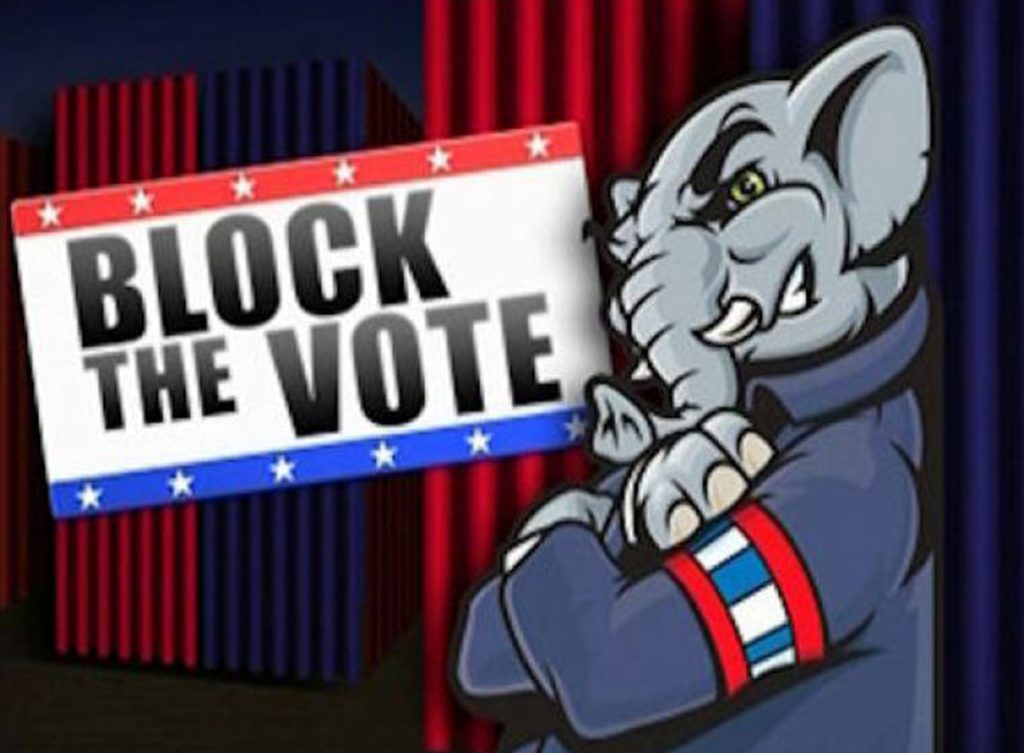Introduction to Voter Suppression Efforts
Twenty-five states have adopted voter suppression measures since 2010. Twenty-two of them are red states, and their measures target Democratic-leaning voters. Some of the most egregious are in eight battleground states, plus Texas, Minnesota, and Alabama. Democrats need to step up their efforts in each of them. Here’s a state-by-state breakdown:
Ohio’s Voter Suppression Measures
In a 5-4 decision swung by Roberts, the Supreme Court upheld Ohio’s purge of voters who skip six years of elections and don’t return prepaid cards confirming their addresses. The Court ruled that the purge didn’t violate federal laws that prohibitpurging voters for skipping elections, because it was based partly on voters’ failure to return their prepaid cards.
Wisconsin’s Voter Suppression Challenges
In another decision, also swung by Roberts, the Supreme Court nullified mail-in ballots received after election day. The state had mailed them out late due to a surge in requests for them triggered by Covid-19 fears. The decision forced voters to choose between voting or risking the virus.
That was an even more difficult choice for African Americans, who are at the highest risk of infection and death and were forced to wait on long lines to vote. In Milwaukee, located in a county where nearly 70% of Wisconsin’s black residents live the state reduced the number of polling places from 182 to five. Republicans also tried to purge 35,000 Democrat-leaning Milwaukee voters who failed to update their addresses. Although it was rebuked by the state courts, the attempt shows how far Republicans will go to thwart voting for Democrats.
North Carolina’s Voter Suppression Tactics
In response to an unprecedented surge in African Americans voting in elections, Republicans tried to require photo ID. Although rejected by two state courts, the attempt demonstrates Republican resolve to eliminate minority votes.
In fact, it extends to outright voter fraud. The Republican candidate for Congress hired operatives in poor, rural Bladen County to knock on black residents’ doors and offer help filling out absentee ballots — help that included filling in the hired operatives’ own voting choices, forging signatures, and even discarding ballots.
Pennsylvania’s Voter Suppression Measures
Republicans are asking a federal court to block the use of mail-in ballot drop boxes, alleging it carries a risk of voter fraud even though there’s no evidence for that. The real reason is the surge in Democratic voting through ballot drop boxes in the 2016 primaries.
Texas’s Voter Suppression Strategies
The Republican-controlled Legislature responded to rapid growth of Texas’ Democratic-leaning Latinx population by making it harder for them to vote. They closed 542 polling sites in the 50 counties that gained the most Latinx and African-American residents, but closed only 34 in the 50 counties that gained the fewest.
A Republican-enacted photo ID requirement was struck down by the courts for purposely discriminating against minorities. But it demonstrates that voter suppression is a key Republican campaign strategy, and we can expect more to come.
A U.S. Court of Appeals reversed a lower court ruling that a law prohibiting the use of mail-in ballots by voters under 65 was unconstitutional because it violated the 26th Amendment. The U.S. Supreme Court denied the plaintiff’s request for an expedited appeal, allowing the restrictions to remain in place for the November election.
Michigan’s Voter Suppression Legislation
The Republican-controlled Legislature enacted a law limiting how organizers can help voters submit absentee ballots and assist their travel to polling places. Violations are subject to 90 days in prison and $500 fines.
Meanwhile, Democrats have challenged another Michigan law requiring absentee ballots to be thrown out if signatures don’t match signatures on documents held by election officials, on the grounds it disadvantages minorities and low-income voters.
Florida’s Voter Suppression Tactics
In 2018 Floridians overwhelmingly voted to amend the State Constitution to eliminate a lifetime ban on voting by felons who had completed their sentences. The amendment re-enfranchised roughly 1.4 million Floridians, mostly Democratic-leaning poor people and minorities. The Republican-controlled Legislature responded by requiring the felons to pay all fines, fees and restitution owed for their crimes to be eligible to vote. Republicans knew most of the felons could never pay anywhere near the more than $1 billion owed.
A Florida U.S. District Court ruled those Republican efforts violated the Constitution’s Equal Protection Clause in the 24th Amendment. The defeat wasn’t complete, however. Press coverage confused the issue, leaving felons unsure whether they had to pay those obligations to vote, which likely reduced the votes cast for Democrats.
Minnesota’s Voter Suppression Strategies
The Democratic-controlled House passed a bill to repeal a law that made it a felony to help voters fill out or submit absentee ballots. The Republican-controlled Senate refuses to consider it. Republicans also plan to resubmit a proposal for a voter ID requirement even though it was rejected by voters in 2012.
Georgia’s Voter Suppression Efforts
Georgia hasn’t voted for a Democrat in more than 20 years, but recent polls and Trump’s narrow 2016 victory suggest it may be on the brink. Given Georgia’s history, Democrats can expect Republicans to attempt some of the most egregious voter suppression.
Republican Brian Kemp beat Stacey Abrams in the 2018 race for Governor in an election Kemp oversaw as Secretary of State – a blatant conflict of interest. During the race he purged 1.4 million voters from the voting rolls and facilitated the closure or relocation of nearly half the state’s polling sites. Those actions are estimated to have prevented an estimated 54,000 to 85,000 African Americans, poor people and students from voting.
Kemp also attempted to throw out voter applications and absentee ballots because their signatures didn’t match the signatures in the Georgia database. The attempt was rejected by the Georgia courts.
Kansas’s Voter Suppression Actions
In 2018, Republican Kris Kobach was Chairman of the Kansas Republican Party and later headed Trump’s voter fraud commission, which claimed that foreigners vote illegally, even though there’s no evidence it’s even a minor problem.
As Secretary of State Kobach strengthened the voter power of a shrinking white Republican minority by moving the only place to vote for more than 13,000 voters in Dodge City, where Latinx make up 60% of the population, to an area with no public transportation.
A federal judge struck down a Republican-sponsored law requiring proof of U.S. citizenship to register to vote. Although the ruling was a move in the right direction, it won’t stop the Republican march towards more voter suppression.
Arizona’s Voter Suppression History
Arizona has attacked the voting rights of Latinx, African American and Native Americans for over a century, according to the 9th Circuit Court of Appeals. The Court struck down a law criminalizing collection of early ballots and allowing officials to discard ballots cast at other than assigned polling places, on the grounds it was laden with discriminatory intent.
But that fight is not over yet. Arizona’s Republican Attorney General petitioned the U.S. Supreme Court to review the decision and obtained a stay allowing the restrictions to remain in effect while the Supreme Court decides whether to take the case.
Alabama’s Voter Suppression Decisions
In yet another decision swung by Roberts, the Supreme Court overturned a lower court injunction blocking Republicans’ ban on curbside voting and their requirement that voters must have witnesses, notaries, and photo ID to vote by absentee ballot.
Conclusion on Voter Suppression
At one time, U.S. elections set the global standard. No longer.
“Over more than two centuries, the United States has stirred a very wide range of feelings in the rest of the world …. But [never] pity until now,” The Irish Times laments. “The country Trump promised to make great again has never…seemed so pitiful.”
“To restore our national reputation,” a retired Foreign Service officer writes, “we must return to our core values.”
Joe Biden urges, “We can and we must restore the soul of our democracy.”
Beating voter suppression is the path to regaining America’s reputation and values, and the soul of our democracy.







